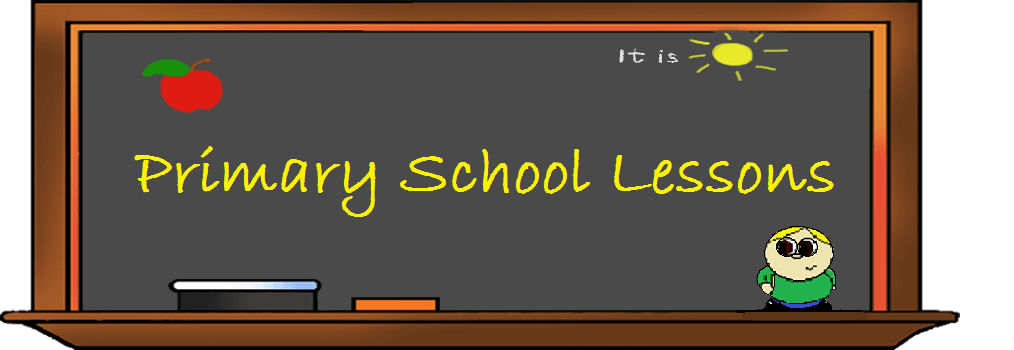__________________________________________________
Often teachers, especially NQT's and teachers who have not taught in a particular class level before, can be slightly apprehensive about the first day back at school after the summer holidays. Here are a few practical ideas for planning out your first day back in Senior Infants (some ideas can be used with Junior Infants too!):
1. Toys:
The first thing that any infant teacher should plan for their first day is to have adequate toys/jig saws/lego available for the children to play with as soon as they come in. Having toys ready means the children are occupied if any parents want to have a word with you and it also gives you the opportunity to make observations of the children and how they interact while also giving you a chance to interact with them one on one before formal class begins. It is up to the teacher whether they want to leave toys on the tables before the children come in, or whether they prefer to leave them on a set of shelves and get children to choose their own from the shelf to bring back to their seat.
 (The later may be easier to introduce later in the week (especially with Junior Infants) as you can take the opportunity to train them as to the correct procedures for doing this: pushing in your chair, going back to your seat straight away, bringing back your work when it is finished, etc.) Personally, I like using a play rota system once the first week has passed, where I name each group and put a picture of a toy beside their group on a chart, changing it daily, ensuring every child gets a chance at every play station. (I will post an entry on structured play rotas soon!)
(The later may be easier to introduce later in the week (especially with Junior Infants) as you can take the opportunity to train them as to the correct procedures for doing this: pushing in your chair, going back to your seat straight away, bringing back your work when it is finished, etc.) Personally, I like using a play rota system once the first week has passed, where I name each group and put a picture of a toy beside their group on a chart, changing it daily, ensuring every child gets a chance at every play station. (I will post an entry on structured play rotas soon!)2. Getting To Know You is VITAL!
Teaching infants is slightly different to other class levels in that they can be anxious on their first day with a new teacher, so the first day is a careful balance between setting rules, establishing discipline and then putting them at ease with a new environment and teacher. This is where getting to know you games come into play. You can find so many games online to suit the class level you are teaching. There are some great ideas on http://www.activityvillage.co.uk/ice-breaker-games for younger children.
 |
| http://goo.gl/wqWx8L |
If anyone would like some examples of some other subbing ideas/games leave a comment below and I will post some!
3. News:
 |
| jhan-camp.blogspot.com |
4. Writing time:
 |
| tx.english-ch.com |
5. Big Books:
Read them a big book! Question them, get them to make predictions and any other activities you can think of! Maybe discuss what happened at the start, middle and end of the story. Get them to draw three pictures of the start, middle and end events in the story.
6. Maths:
Begin the lesson with a Counting Chorus, where you get the children to count as far as ten/twenty, getting different groups to call out different numbers in the sequence when you point to them. For example: the blue group call out one, the red group call out two, etc.
 You can easily organise some kind of counting activity where they have to put the correct number of cubes or counters in the correct template/container (1-10). I have some good counting activities in my Maths Centers' post which you could use for this purpose! This is a good opportunity to see what children remember from last year and observe the children who struggle with counting.
You can easily organise some kind of counting activity where they have to put the correct number of cubes or counters in the correct template/container (1-10). I have some good counting activities in my Maths Centers' post which you could use for this purpose! This is a good opportunity to see what children remember from last year and observe the children who struggle with counting.7. Songs:
Dr. Knicker Bocker:
Open and Shut Them:
8. Sight Word Games:
Using a word wall of words from their Junior Infant readers (or Dolch words or even Senior Infant words if you want!), you can use a teacher pointer to play some word games. Tic Tac Toe is a game where you keep pointing to different words while chanting with the class:
 'Tic, tac, toe, here we go, where we land, no one knows.'
'Tic, tac, toe, here we go, where we land, no one knows.'The card that you land on is the card you want them to read for you. You can start out by getting the class to read out the word you land on and then you can pick confident children to read words by themselves. You can vary the game by speeding up/slowing down the rhyme and starting in different places each time.
9. Have a Reward System in Place:
I like to have all the children's names on a separate board/laminated chart and at the end of each day, I give them a smiley face for good behaviour. I explain to them why they may not be getting one if I decide not to give them one and tell them what they need to do to get one the following day. If they get twenty faces they get to take a prize out of the 'Lucky Dip' bosca draoíochta. If a child is behaving in a way that is particularly impressive, I will give them a smiley face during the day or if they do something that is particularly unacceptable, I will take one away.
10. Rules of the Classroom:
This is something which can be done later on in the day as an SPHE lesson before the children go home. Get them to suggest some rules for the classroom and talk about why each is important. I usually guide them to suggest these four rules:
I also tell them that I will be giving a sticker to four children at the end of the week who are the best at keeping each rule, reminding them constantly during the week of the rules and praising the behaviours when I see them. This carries on every Friday until each child gets rewarded.
 |
| www.lcsedu.net/ |
I like using the High 5 method of preparing the children to leave the classroom. When they are all in the line and paying attention, I call out High 5 while putting up my hand. We chant while pointing to the relevant body parts: 'Looking eyes, listening ears, hands to yourself, walking feet and finger on your lip.' These are the behaviours I am looking for in the line and if I see a child who is carrying out these behaviours, I praise them in a whisper (It is always important to keep the noise level down as they will mimic your noise level!).
I hope you find some of these tips and lesson ideas useful! Above all else, remember: don't think too big for the first day back! Keep activities easy and short and try to make it as fun as possible! Don't forget how much children love nature walks/Art/P.E. and simple games like Simon Says (or Deir Ó Grádaigh) and I Spy, so don't forget to include some of these things in your first day back!
Best of luck!







